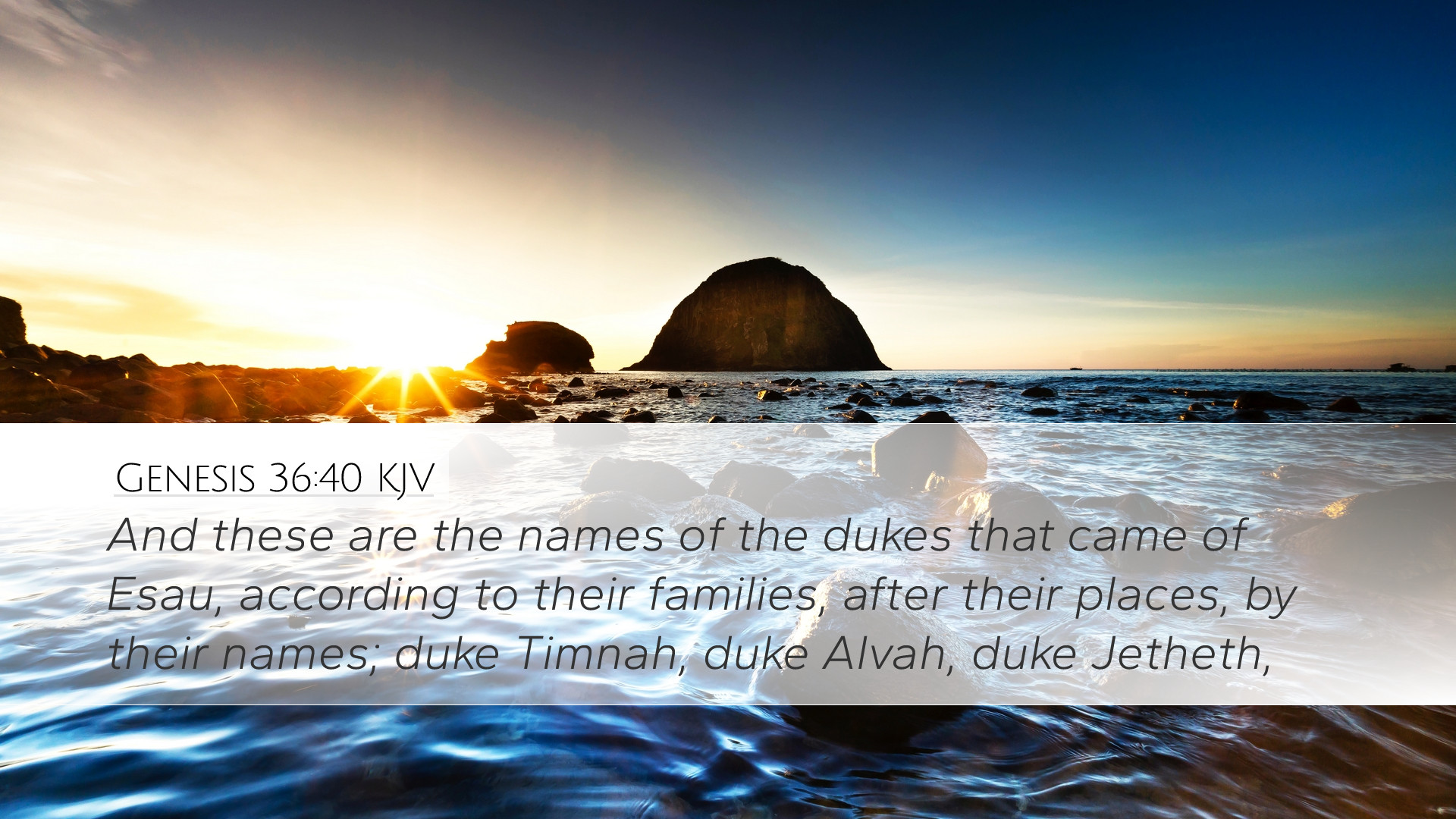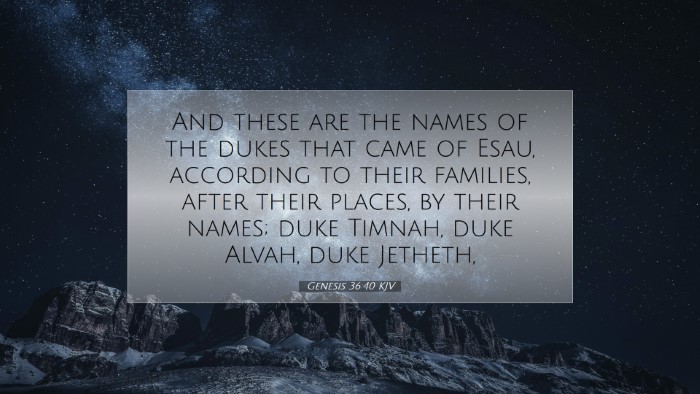Commentary on Genesis 36:40
Genesis 36:40 states, "And these are the names of the dukes that came of Esau, according to their families, after their places by their names; duke Timnah, duke Alvah, duke Jetheth." This verse provides a significant transition within the narrative of Esau's lineage, highlighting the chiefs or dukes that descended from him. The genealogical emphasis reflects ancient cultural practices that recognized the importance of family lineages, especially among leadership figures.
Contextual Background
This verse is situated within the broader context of Genesis 36, which details the genealogy of Esau, also known as Edom. This chapter outlines the descendants of Esau and sets the stage for understanding the subsequent interactions between the Edomites and the Israelites.
Historical Significance
The mention of "dukes" indicates a form of tribal or clan leadership that was present in Esau's lineage. In the Hebrew tradition, clans and tribes played crucial roles in social and military organization.
Commentary Insights
Matthew Henry's Commentary
Matthew Henry emphasizes the importance of Esau's descendants, noting that they became significant figures in their own right, corresponding to their historical complex of adversities and relationships with Israel. He interprets the naming of these dukes as indicative of their influential positions and suggests that understanding their names is crucial for grasping Israel's subsequent history.
Albert Barnes' Notes
Albert Barnes notes that the list of dukes serves a dual purpose: it affirms the legacy of Esau and contrasts it with the promises made to Jacob. According to Barnes, the naming serves as a reminder of God's faithfulness across generations, while also establishing a background for the conflicts that would arise between the Edomites and Israelites. He elaborates that, although Esau was forsaken in terms of the covenant blessing, his lineage continued to flourish in ways that were notable in the ancient Near East.
Adam Clarke's Commentary
Adam Clarke draws attention to the meaning of the names of the dukes listed in this passage. He stresses that understanding these names can uncover deeper theological implications concerning God's providence and human agency. Clarke suggests that these names and the regions they governed reflect a semblance of order in a narrative otherwise marked by familial tension. He further posits that Esau's descendants found success and established their heritage despite the contentious history with Jacob’s family.
Theological Reflections
This verse serves as a bridge between narratives that often focus on conflict and favoritism within families. The presence of names inherited through history emphasizes the continuity of God’s creation, where every individual, clan, and tribe plays a role in the larger story of redemption, even when they diverge from God's chosen path through Israel.
Application for Modern Readers
- Understanding Legacy: Modern readers can reflect on the impact of one's legacy and family lineage. This prompts questions about what we inherit and how we present that inheritance to following generations.
- Grace and Sovereignty: The continued existence of Esau’s lineage, despite his rejection of the covenant, illustrates God’s sovereignty. It shows how grace operates in unique ways even within frameworks that seem to oppose divine designs.
- Conflict and Resolution: The historical interactions between the Edomites and Israelites challenge readers today to reconcile modern conflicts while honoring different lineages and histories.
Conclusion
In summary, Genesis 36:40 is not merely a genealogical account; it encapsulates themes of legacy, conflict, and divine sovereignty. As pastors, students, theologians, and scholars study this verse, they are invited to delve deeper into the significance of each name and position, encouraging a broader understanding of God's plan and the multifaceted nature of human relationships throughout biblical history.


